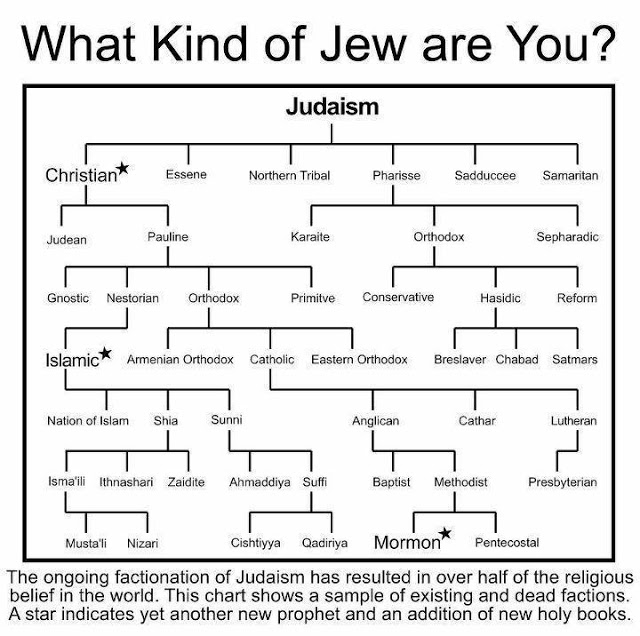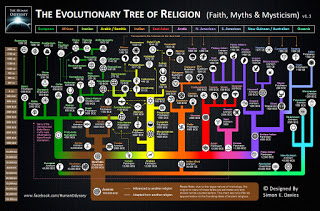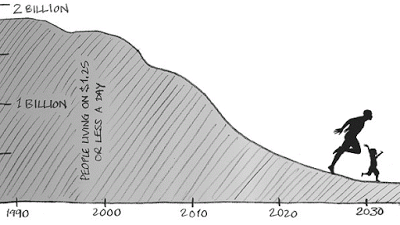“God Is No Respecter of Persons”
Acts 10–14; 15:1–35
LDS manual: here
Purpose
To show that the god of the Bible is unjust, and encourage readers to do better than God does.
Reading
Even as a believer, I was noticing doctrinal shifts in the Mormon Church. The 1978 change on race and the priesthood was the biggest example — that was an earthquake — but I’m thinking of the little shifts and tremors.
Like the idea that Blacks were neutral in the War in Heaven. This idea was taught to me in church, and the idea even popped up in LDS fiction of the time. Well, there was no way of proving it wrong, but it was distasteful, and that was reason enough for it to get shifted.
I found the 1990 changes to the Temple Endowment — well, quite welcome, actually! The miming of throat-slitting and disemboweling was really creepy. But why would the ceremony need to change? I could think of nothing but: The penalties were too weird and off-putting. Well, wouldn’t God have known that to start with?
Even as a believer, doctrinal creep bugged me. I made a sour joke once: “What’s the difference between true and false Mormon doctrine? About 40 years!”
Of course, Mormonism is well-equipped to shift its doctrines. The idea of “continuing revelation” means that the president can change what Mormon doctrine is. It doesn’t work that way, though — church leaders generally avoid revealing or clarifying anything. Instead, changes are brought about by an anonymous committee working out of the Newsroom. In the modern church, “continuing revelation” usually means that the church is continually (but gradually) revealing unsavoury details about its past to its members.
And herein lies the problem: if old doctrines were weird, unpalatable, or — in the case of race and the Priesthood, just plain racist and unjust — and they need to be changed, then the church should say that the old ways were wrong, and that they’ll try to do better.
Instead, according to the LDS Gospel Doctrine manual, the issue of race and the Priesthood is taken as evidence of God’s justice. Because he stopped being racist.
If any class members remember the day the revelation was announced, invite them to describe how they felt when they learned of it.
• Who made the priesthood available to all worthy male members of the Church? (The Lord.) How did the Lord make his will known to the Church? (He revealed it to the prophet, who then announced it to the Church members.) How did this revelation affect the Church?
Explain that this revelation is an example of how the Lord continues to direct
his Church through revelation. This lesson discusses a similar revelation that was given to the members of the Church shortly after the Resurrection of Jesus Christ.
Better question: Who was it that prevented the priesthood from being available to all worthy male members of the Church in the first place?
It’s hugely ironic that this example of discrimination is taken by Latter-day Saints as a sign of how great God is.
Brother Jake has explained how this is totally not racist.
Anyhow, the lesson starts with a racist doctrine, as a way of tying it into an even more racist doctrine: only allowing Jews to have the gospel. Which apparently Jehovah was okay with at first. It seems that God has had some consciousness-raising experiences over the years.
I’m noticing some shifting in the pews, which means I’ve been monologuing for too long. Let’s get to the lesson.
Main ideas for this lesson
Background
At this point in our story, many Christians thought that only ex-Jews should be Christians.
Ask: Where would they have gotten that idea?
Answer: From Jesus, who never intended that his message should go to anyone but the ‘lost sheep of the house of Israel’.
Restricting your target audience is the worst idea for a business, and it must have been clear to someone (probably Peter) that tribal religions (like Judaism) were going nowhere, and that universalising religions were the way to go. So Peter got a vision.
Acts 10:9 On the morrow, as they went on their journey, and drew nigh unto the city, Peter went up upon the housetop to pray about the sixth hour:
10:10 And he became very hungry, and would have eaten: but while they made ready, he fell into a trance,
10:11 And saw heaven opened, and a certain vessel descending upon him, as it had been a great sheet knit at the four corners, and let down to the earth:
10:12 Wherein were all manner of fourfooted beasts of the earth, and wild beasts, and creeping things, and fowls of the air.
10:13 And there came a voice to him, Rise, Peter; kill, and eat.
10:14 But Peter said, Not so, Lord; for I have never eaten any thing that is common or unclean.
10:15 And the voice spake unto him again the second time, What God hath cleansed, that call not thou common.
The early church members must have been pleased to find that circumcision was no longer necessary.
Acts 15:5 But there rose up certain of the sect of the Pharisees which believed, saying, That it was needful to circumcise them, and to command them to keep the law of Moses.
15:6 And the apostles and elders came together for to consider of this matter.
15:7 And when there had been much disputing, Peter rose up, and said unto them, …
15:10 Now therefore why tempt ye God, to put a yoke upon the neck of the disciples, which neither our fathers nor we were able to bear?
And that’s how Christianity managed to distinguish itself from other Jewish sects. (But they’re still Jews.)
Ask: What kind of Jew are you?
If you really want to take the broad view, have a look at this Evolutionary Tree of Religion. Can you spot your religion, or former religion?
God is a respecter of persons
Peter, despite a lifetime of evidence to the contrary, says this:
Acts 10:34 Then Peter opened his mouth, and said, Of a truth I perceive that God is no respecter of persons:
Ask: What does this phrase mean?
Answer: It is usually taken to mean that God treats everyone the same.
I don’t think anything can be clearer than the fact that God does not treat everyone the same. Paul, in his speech to the Athenians, said:
Acts 17:26 And [God] hath made of one blood all nations of men for to dwell on all the face of the earth, and hath determined the times before appointed, and the bounds of their habitation;
That means that God has chosen where and when everyone will live, and that means that God has elevated some to lives of prosperity, peace, and plenty, and consigned others to lives of disease, poverty, and misery. How unequal!
From Sam Harris’ debate with William Lane Craig:
“Nine million children die every year before they reach the age of five. Picture an Asian tsunami of the sort we saw in 2004 that killed a quarter of a million people—one of those every 10 days, killing children only under five: that’s twenty-four thousand children a day, a thousand an hour, seventeen or so a minute. That means before I get to the end of this sentence, some few children very likely will have died in terror and agony.
“Think of the parents of these children. Think of the fact that most of these men and women believe in God and are praying at this moment for their children to be spared, and their prayers will not be answered. But according to Dr. Craig, this is all part of god’s plan.
“Any god who would allow children by the millions to suffer and die in this way and their parents to grieve in this way, either can do nothing to help them or doesn’t care to. He is therefore either impotent or evil. And worse than that, on Dr. Craig’s view, most of these people, many of these people certainly, will be going to hell because they’re praying to the wrong god. Just think about that: through no fault of their own, they were born into the wrong culture, where they got the wrong theology, and they missed the revelation. There are 1.2 billion people in India at this moment; most of them are Hindus, most of them therefore polytheists. In Dr. Craig’s universe, no matter how good these people are, they are doomed. If you are praying to the monkey God Hanuman, you are doomed—you’ll be tortured in hell for eternity. Now is there the slightest evidence for this? No. It just says so in Mark 9 and Matthew 13 and Revelation 14.
“So God created the cultural isolation of the Hindus; he engineered the circumstance of their deaths in ignorance of revelation, and then he created the penalty for this ignorance, which is an eternity of conscious torment in fire.
…
“And please notice the double standard that people like Dr. Craig use to exonerate god from all this evil. We’re told that God is loving and kind and just and intrinsically good. But when someone like myself points out the rather obvious and compelling evidence that God is cruel and unjust, because he visits suffering on innocent people of a scope and scale that would embarrass the most ambitious psychopath, we are told that god is mysterious. Who can understand god’s will? Yet this merely human understanding of God’s will is precisely what believers use to establish his goodness in the first place. If something good happens to a Christian—he feels some bliss while praying, or he sees some positive change his life—we’re told that God is good. But when children by the tens of thousands are torn from their parents’ arms and drowned, we are told god is mysterious.”
Fortunately, the crushing poverty under which many people live getting better. Here’s a chart showing that fewer and fewer of us are living in abject poverty.
Ask: If you’re doing okay financially, are you sharing with others who have much less? There are lots of good secular organisations that are working to eradicate poverty and disease. By donating to them, you can help to do what God has failed to do for millennia of human history.
My favourites are Oxfam, MSF, water.org, and the Smith Family. Put yours in comments.
Additional lesson ideas
How church policy and practices are made
From the Gospel Doctrine manual:
• How do the events described in Acts 15:6–31 demonstrate the pattern by which decisions about Church policy and practices are made?
a. Church leaders meet to consider the matter (verse 6).
b. They discuss the matter thoroughly (verses 7–21).
c. They make a decision in accordance with the Lord’s will (verses 19–21).
d. The Holy Ghost confirms that the decision is correct (verse 28).
e. The decision is announced to the Saints for sustaining (verses 22–31).
I see a different pattern at work.
a. The morality of the world improves, or an unpleasant tidbit from church history emerges.
b. The Church feels pressure to change.
c. Church leaders resist the pressure, because that’s not how the church works!
d. The issue starts to affect the bottom line, as members leave.
e. President Newsroom releases an uncredited, unannounced essay on lds.org in the middle of the night.
f. Apologists, PR flacks, and surrogates defend the church
g. Church leaders say nothing to clarify church doctrine, so that everyone can keep believing what they like.
All right, it’s a lovely day, and some of you are looking longingly out the window, so let’s dismiss. I’ll see you next week.



Recent Comments